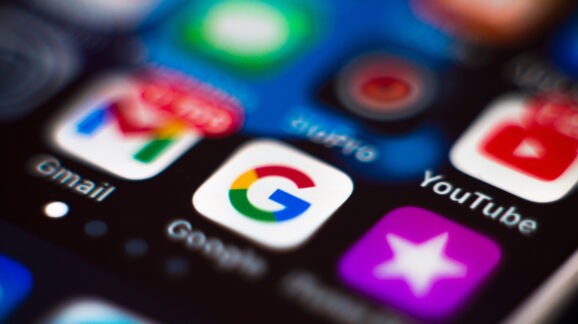Targeting Digital Platforms

Photo Credit: Getty
President Biden’s antitrust regulators have filed a pair of lawsuits targeting tech platforms, claiming they abuse their position as intermediaries between consumers and third parties. The Justice Department (DOJ) sued Apple in March 2024 for allegedly monopolizing the smartphone market, and the Federal Trade Commission (FTC) sued Amazon in September 2023, claiming the company used anticompetitive and unfair practices to maintain its monopoly in the online retail market.
Both FTC Chair Lina Khan and Assistant Attorney General Jonathan Kanter, head of DOJ’s Antitrust Division, have sounded alarms over what they see as nefarious middlemen in the American economy, particularly in digital markets. In her 2021 “Vision and Priorities” memorandum to the FTC, Khan wrote, “Research documents how gatekeepers and dominant middlemen across the economy have been able to use their critical market position to hike fees, dictate terms, and protect and extend their market power” (Khan 2021). More recently, Kanter delivered a keynote speech for the Open Markets Institute where he described platforms as powerful intermediaries and middlemen that “have the ability to extract more than their fair share from both sides of the market” (Kanter 2024).
The success or failure of a platform hinges on the value it delivers to its users, and it would be fair to say that both Apple and Amazon have had plenty of success. When it comes to the agencies’ respective antitrust suits, courts will ultimately have to weigh alleged anticompetitive conduct against the procompetitive effects of the platforms’ business models.
Apple / The DOJ accuses Apple of monopolizing the smartphone market by exerting its control over app distribution and access to application programming interfaces on the iPhone to suppress technologies that would increase competition among smartphones. The allegedly suppressed technologies include “super apps” (all-in-one applications), cloud streaming apps, messaging apps, smartwatches, and digital wallets. The DOJ argues that by suppressing these technologies, Apple has increased consumers’ reliance on Apple’s iOS ecosystem, thereby making it difficult for users to switch to a competing smartphone.
Central to the DOJ’s claims is Apple’s position as an intermediary between third-party creators and consumers, describing the tech company as a “middleman” and “toll booth operator.” The petition also asserts that Apple’s “leverage over third parties reinforced its tight control over how third parties innovate and monetize on and off the smartphone in ways that were anticompetitive and exclusionary.”
However, there are several procompetitive justifications for Apple’s terms. Apple’s closed ecosystem has become a selling point because it promotes fully integrated products and seamless user experience. Apple also promotes the security and privacy benefits of its closed ecosystem. The DOJ characterizes these as merely cover for anticompetitive conduct. However, payment functions are complicated and Apple has a strong justification for wanting to provide secure financial transactions. “When there is demand for trust in the process—especially in financial transactions—you want to integrate everything,” argues American Enterprise Institute scholar Will Rinehart (Rinehart 2024).
Amazon / Like the DOJ’s case against Apple, the FTC accuses Amazon of exploiting its position as an intermediary. The complaint focuses on two contractual arrangements with third parties that use Amazon to sell their goods.
First, Amazon requires sellers to use its storage, packaging, and delivery services to qualify for the platform’s “Prime” label and its associated two-day shipping guarantee. The FTC alleges that this requirement allows Amazon to impose excessive fees on third-party sellers while also restricting their ability to explore alternative fulfillment methods.
But Amazon has a clear reputational interest in ensuring that its Prime orders are delivered in a safe and timely manner, according to Bilal Sayyed, former director of the FTC’s Office of Policy Planning. “This idea that parties should be able to take advantage of the platform and the Amazon brand, but then give the merchandise to a third party that may … not meet the same delivery fulfillment and delivery standards, really strikes me as a very dangerous ground for the agency to hang a case on,” Sayyed has observed (ITIF 2023). Amazon’s two-day shipping with Prime is overwhelmingly popular with consumers, and a court will likely view the practice as procompetitive.
Read more at CATO institute